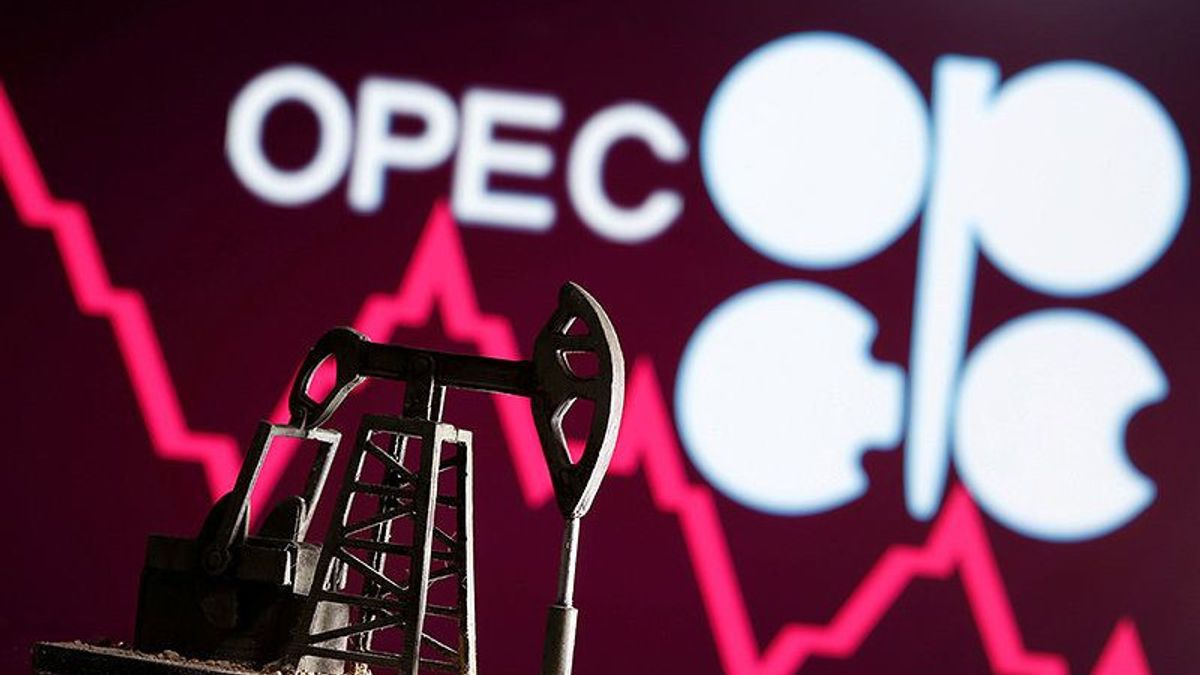JAKARTA - OPEC is likely to maintain its view that world oil demand will increase over another decade, longer than many other forecasters estimate, in a key report to come, although the role of renewable energy and electric cars is increasing, two OPEC sources said.
The Organization of Petroleum Exporting Countries is scheduled to update its forecast for long-term oil demand in the World Oil Outlook 2022 on October 31. The 2021 version estimates that oil demand will reach the highlands after 2035.
Another decade or more of oil demand growth will be an impetus for manufacturers and OPEC, whose 13 members depend on oil revenue, and will justify further investment in new supplies. Consumers and governments urging efforts to curb oil use to combat climate change will be less than happy.
OPEC made changes in 2020 when the pandemic suppressed demand, saying it would eventually slow down after years of forecasting increased consumption. The latest update is likely to see OPEC among more bullish oil demand forecasters.
"Ini mirip dengan tahun lalu dalam hal prospek permintaan permintaan," kata salah satu sumber OPEC tanpa menyebut nama. Sumber kedua mengatakan OPEC belum mengajukan jadwal kapan permintaan akan stabil dikutip dari ANTARA, Sabtu, 29 Oktober.
Another prediction is that oil demand peaks early. TotalEnergies estimates this will happen before 2030.
The International Energy Agency on Thursday (27/10/2022) for the first time in its modeling history said demand for all fossil fuels would peak, with low demand for oil in the middle of the next decade.
OPEC Vienna headquarters declined to address questions ahead of publication launch on Monday (31/10/2022) in Abu Dhabi which will be attended by OPEC Secretary-General Haitham Al Ghais and other OPEC officials.
Another OPEC source said Russia's invasion of Ukraine - which has made oil and gas prices soar and has caused an energy crisis - could increase oil demand in the near future due to fuel transfers, as well as ongoing recovery from the pandemic.
"It is hoped that oil and gas will remain the dominant fuel in the world energy mix until the middle of this century," said this source.
Last year, OPEC estimated oil demand to reach 108.2 million barrels per day by 2045, up from 90.6 million barrels per day in 2020.
The group has continued to lower projections for 2045 over the past few years, citing changes in consumer behavior caused by the pandemic and competition from electric cars.
In contrast, this year's OPEC is expected to increase its 2045 demand forecast, two sources said. However, two former OPEC officials cited a long-term trend that would burden demand.
"Even oil-producing countries are interested in electrification due to pollution," Hasan Qabazard, head of OPEC research from 2006 to 2013, and a Kuwaiti. "In Kuwait, people started buying electric cars."
Qabazard last year said demand could peak in a decade but perhaps later and maintain that view.
A former OPEC minister said the long-term implications of Ukraine's war could drive a shift towards renewable energy.
"The war in Ukraine has changed the dependence of Europe and the United States on Russian oil and gas," said Chakib Khelil, former Algerian oil minister and president of OPEC. "Europe will increasingly depend on future renewable energy and less on oil and gas from Russia."
He added that it was "very likely" demand could increase earlier than expected in OPEC's current forecasts.
The English, Chinese, Japanese, Arabic, and French versions are automatically generated by the AI. So there may still be inaccuracies in translating, please always see Indonesian as our main language. (system supported by DigitalSiber.id)













